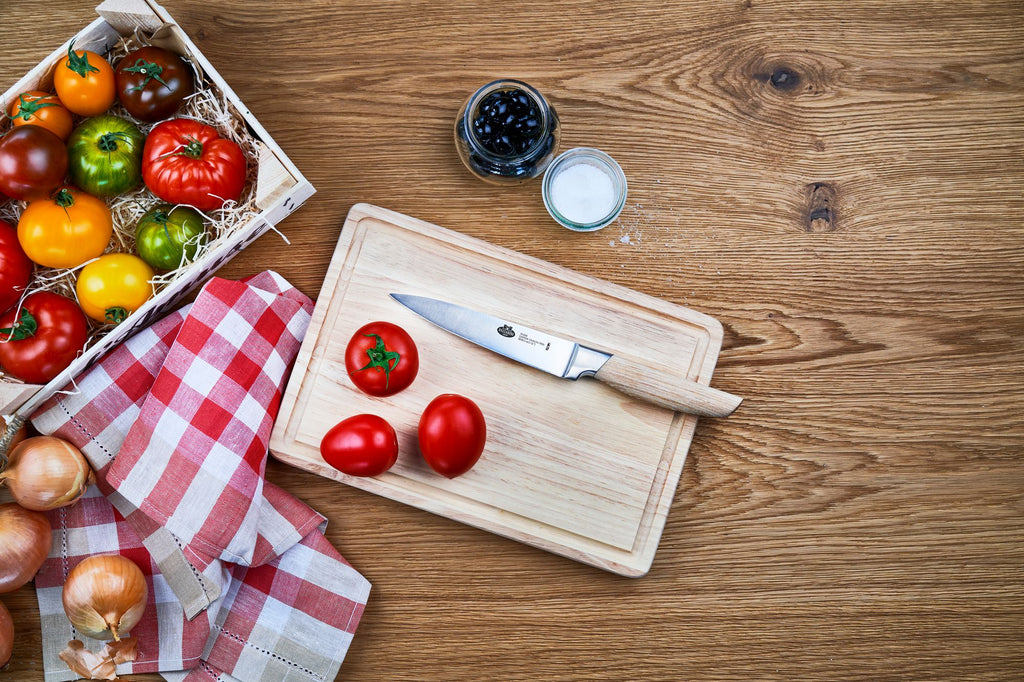For kitchen professionals, the choice of tools is crucial, especially when it comes to outdoor cooking. The spotlight today is on German knives for outdoor cooking, renowned for their robust construction and precision. Whether you're a seasoned chef or an aspiring culinary expert, understanding the unique features of these knives can significantly elevate your outdoor culinary experiences.

The Legacy of German Knives
German knives have a long-standing reputation in the culinary world, known for their durability and strength. Rooted in centuries of craftsmanship, brands like Wsthof and Zwilling have set high standards for what a quality knife should be. The craftsmanship involved ensures that these knives are not only sharp but also maintain their edge over time, making them ideal for the rigors of outdoor cooking.
Why Choose German Knives for Outdoor Adventures?
Outdoor cooking demands tools that can withstand various conditions. German knives, with their high-carbon stainless steel blades, offer the perfect balance of hardness and flexibility. This makes them less prone to chipping compared to their Japanese counterparts, which can be an essential factor when cooking outdoors where surfaces and conditions are unpredictable.
Moreover, the ergonomic design of German knives, often with a full tang, provides better control and balance. This is particularly useful when dealing with different types of meats and vegetables, allowing for precise cuts that enhance the presentation and taste of dishes.
Key Features of German Knives
Understanding the features that make German knives stand out can help in choosing the right one for your outdoor cooking needs. First, the blade design is typically thicker and heavier, which aids in cutting through tough meats and dense vegetables effortlessly.
Additionally, the bolster of a German knife acts as a finger guard, offering safety during intricate cuts. The handle is another significant aspect, often made from durable materials like Pakkawood or synthetic composites that resist moisture and provide a comfortable grip.
For a deeper dive into the aesthetics and design of these knives, you might find our article on German Knife Aesthetics insightful.
Maintaining Your German Knives
Proper maintenance is key to extending the lifespan of your German knives. Regular honing is recommended to keep the edge sharp, and professional sharpening should be done periodically. After each use, clean the knives immediately to prevent staining and corrosion.
For more on maintaining different types of steel, check out our comparison of Stainless Steel vs Carbon Steel.
German Knives vs. Japanese Knives
The debate between German and Japanese knives is ongoing in the culinary world. While both have their merits, German knives are often favored for outdoor cooking due to their versatility and resilience. They are perfect for tasks that require a stronger blade, such as breaking down poultry or cutting through thick-skinned vegetables.
To understand more about the differences, you may refer to this German vs Japanese Knives comparison.
Expert Tips for Outdoor Cooking with German Knives
When taking your German knives into the great outdoors, keep these expert tips in mind:
- Carry a portable honing tool: This ensures your knife remains sharp throughout your cooking session.
- Use a cutting board: To protect the blade, always use a cutting board even when outdoors.
- Store safely: Ensure your knives are stored in a sheath or knife roll to prevent damage during transport.
For those new to outdoor knife usage, our blog on Folding Knife Basics offers valuable insights.

FAQ
What makes German knives suitable for outdoor cooking?
German knives are ideal for outdoor cooking because of their durability, balance, and ability to maintain a sharp edge under tough conditions.
How do I maintain the edge of my German knife?
Regular honing and occasional professional sharpening will keep your knife in top condition. Always clean and dry your knife after use to prevent corrosion.
Are German knives better than Japanese knives for outdoor cooking?
It depends on the task. German knives are generally more robust and versatile, making them better suited for outdoor cooking where durability is key.


























